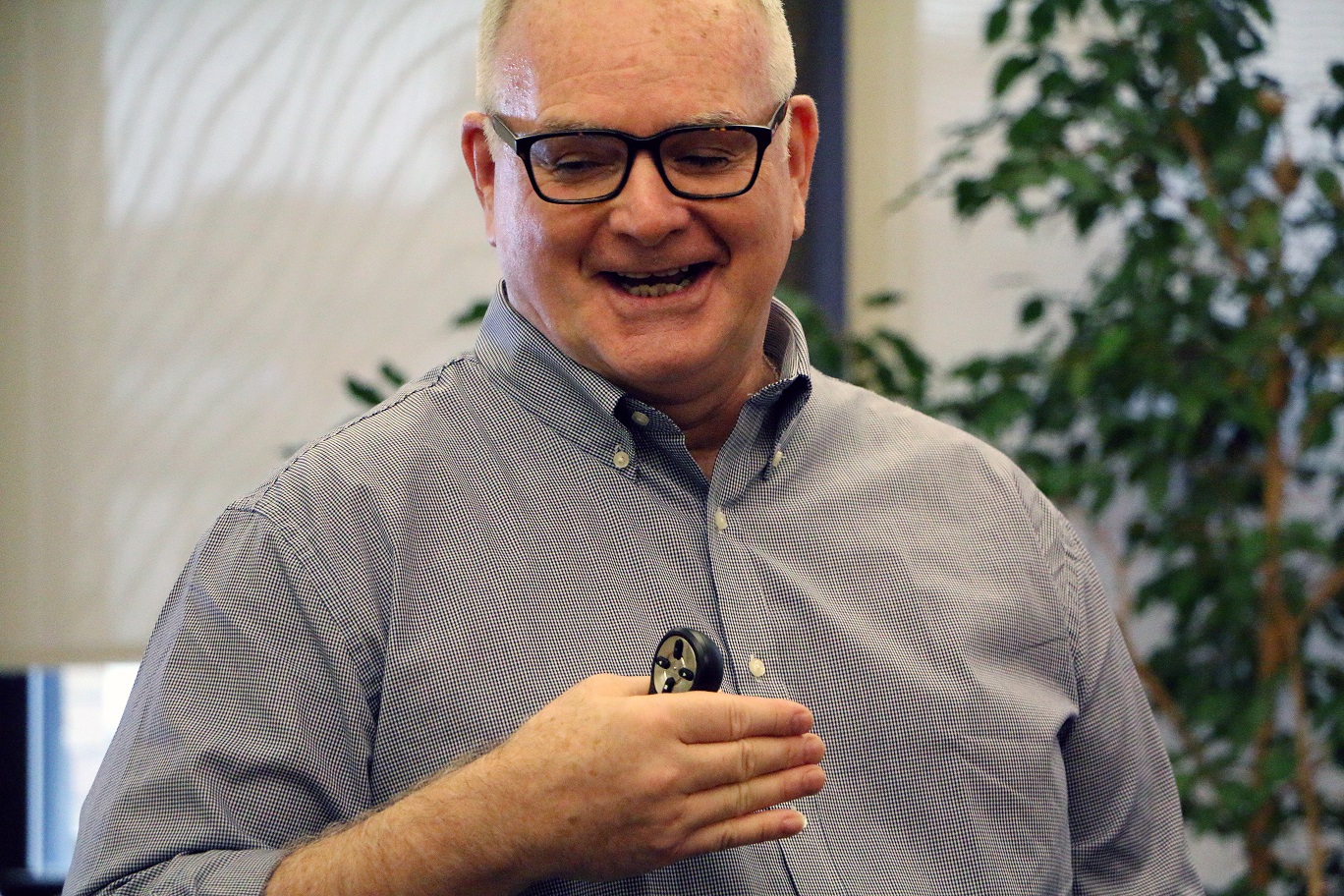Blog

A Decade of Training and Motivation
October 4, 2017Our Training Institute provides interactive, hands-on training and continuing education credits for professionals on a wide-range of topics, including housing and homelessness, behavioral health, case management, and clinical and evidence-based practices. We sat down with James Kennedy, Assistant Director of Training to get an inside look into the program and discuss his experiences in the field.
How long have you been at CUCS and the Training Department?
I have been here since 2001 and working with the Training Department for almost 10 years. I started as a social worker at the Prince George and from there became a clinical coordinator. I went on to be the Assistant Program Director of the Uptown Program and in 2008 transitioned into the Training Department.
How has the Training Program evolved over the years?
We have actually gone through a lot of changes since that time. We were originally part of the Housing Resource Center (HRC), and then separated to become the Training Department. Today, we are viewed under the same umbrella as the HRC but do very different things.
At one point we were doing a lot of projects with consultation, now we shifted direction and do the trainings with some support. We have a couple of evidence based practices where we go in and do the core training and then we do a support section when they start implementing the practice because a lot times there is a gap between our training and their implementation. We do an organizational assessment, a work plan for the implementation, an evaluation of community resources and supplemental support calls. At the end, we have them do a presentation with a client and we review it and brainstorm with them. Sometimes projects like these can take up to a year. We send clients consultation forms that they fill it out and send us for notes on their progress so we know where they are and how we can help them.
How does the Training Program continue to evolve?
We do quite a bit of research every six months so we stay with what is latest and new and stay ahead of the curve. We also ask for evaluations after every training. We want to run towards criticism so we can make ourselves better, while most people run away from it.
What is your favorite training to give?
One of my favorites is Motivational Interviewing. The goal of Motivational Interviewing is to help professionals strengthen their ability to convey empathy and motivate change in their clients. I really like it because the training itself is very interactive, it’s very hands on and builds skills. We do a lot of practice, I really like role playing and improv sessions. I started out as an actor so this training in particular gives me a chance to bring some of those skills in.
What impact do you see this training have on the people who take it?
It just changes the way they look at the tone of the work. As a social worker, the spirit behind what you do is so important because people can read the underlying current in what you say. Bringing consciousness to people and making sure they are aware that it’s not only what you say, but it’s also how you say, is really important. The training helps you learn skills to use when someone comes in agitated because no one is listening to them. You do a reflection, “I hear you loud and clear, you are really upset” and ask them if you can give them a recommendation.
I had a woman when I asked if I could give her some advice start giggling and say “can I take a rain check on that? I really want to hear what you have to say but no one has ever asked my permission so I kind of want to hold on to that. Most people just tell me what they want me to do and I get a little sick of that.” That was very interesting to hear and that totally changed our relationship. So seeing some of the people I train learn those kinds of skills of perception and understanding has been really exciting to me.
What do you like the most about training?
I love doing what I do, it’s really exciting. I love theater, social work and teaching. Training combines all three so I get the trifecta. I love standing up and presenting and it’s great to find something that you like to do, are good at and really enjoy putting yourself into it. I actually find that I learn something new every time I do a training. It’s a great way to continue your own education as well as feel like you are giving back in a significant way. You also get to meet such a wide variety of people. In order to continue with your social work license, everyone has to now take some continuing education. So it’s great, it’s a huge scope of people. I am very happy here.
